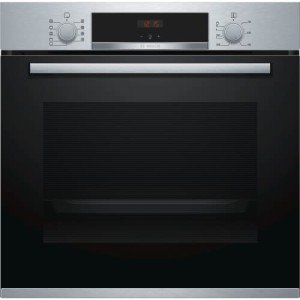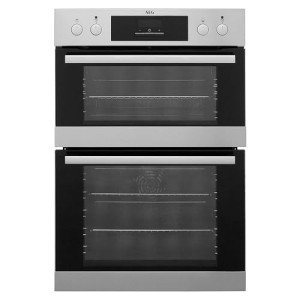See What In Built Oven Tricks The Celebs Are Utilizing
페이지 정보
본문
Understanding In-Built Ovens: A Comprehensive Guide
In the realm of modern kitchen style, inbuilt ovens have increased to prominence, mixing performance with aesthetics. Their seamless combination into kitchen cabinetry supplies a structured appearance, making them significantly preferred by property owners and cooking lovers alike. This short article checks out the various features, advantages, setup factors to consider, and popular kinds of in-built ovens, along with answering some often asked concerns.
What is an In-Built Oven?
An in-built oven, typically referred to as a built-in oven, is a kitchen home appliance developed to be set up within cabinets, instead of as a freestanding system. This configuration allows for a more advanced and organized kitchen layout while optimizing readily available area. Built-in ovens come in different sizes, styles, and performances to match different cooking requirements and choices.
Benefits of In-Built Ovens
The advantages of installing a built-in oven extend beyond mere visual appeals. Here are some key benefits:
Space Efficiency: Built-in Built oven (rentry.co) ovens are developed to fit comfortably within kitchen cabinets, making them perfect for compact areas. This style leaves counter area complimentary for meal preparations.
Adjustable Design: Homeowners can pick from a range of designs and finishes to complement their kitchen decor, boosting the total appearance of the area.
Enhanced Functionality: Many built-in ovens are equipped with innovative cooking technology, providing functions such as convection cooking, steam cooking, and self-cleaning functions, which enhance cooking efficiency and flexibility.
Ergonomic Height: Installing an oven at eye level reduces the requirement to flex down, in built oven making it easier to inspect food and manage meals without straining the back.
Improved Safety: Built-in ovens can integrate safety functions such as cool-to-the-touch surface areas and child locks, which can be particularly important in homes with kids.
Kinds Of In-Built Ovens
In-built ovens come in a number of types to deal with different cooking needs. Below is a contrast of common types:
| Type | Description | Pros | Cons |
|---|---|---|---|
| Single Oven | A traditional oven that cooks from one space | Space-efficient, much easier to utilize | Minimal cooking capability |
| Double Oven | Two separate oven compartments for diverse cooking | More cooking space, versatility | Greater cost, takes up more space |
| Compact Oven | Smaller sized ovens perfect for small kitchens or as a second oven | Space-saving, versatile | Limited capacity |
| Steam Oven | Utilizes steam for cooking, preserving wetness | Healthier cooking alternatives | Generally more pricey |
| Wall Oven | Built into the wall, offered in single or double configurations | Saves flooring space | Setup complexity |
Functions to Consider When Choosing an In-Built Oven
When selecting a built in oven to buy-in oven, a number of features ought to be taken into account:
Size: Measure your kitchen space and cabinetry to guarantee the oven fits properly. Typical widths for built-in ovens range from 24 inches to 30 inches.
Cooking Methods: Determine the cooking methods you choose-- traditional, convection, or steam. This decision will substantially influence your cooking design and the oven's abilities.

Energy Efficiency: Look for ovens with high energy effectiveness scores. These designs save cash on energy costs and are better for the environment.
Control Options: Evaluate the control interfaces. Some models provide smart features permitting remote cooking control and In Built Oven tracking by means of smartphone apps.
Safety Features: Ensure the oven includes vital security features, particularly if children will be present. Lock-out mechanisms and cool outsides are important improvements.
Setup Considerations
Appropriate setup is critical for the ideal efficiency of an in-built oven. Here are some installation considerations:
- Ventilation: Ensure appropriate ventilation to get rid of smoke and odors. Speak with local building regulations concerning kitchen ventilation requirements.
- Electrical Requirements: Built-in ovens usually need a dedicated electrical circuit. Have a qualified electrician assess price and safety.
- Expert Installation: While DIY may be appealing, hiring a professional installer makes sure the oven is fitted firmly and securely.
FAQs About In-Built Ovens
What is the difference in between a built-in oven and a freestanding oven?
Built-in integrated ovens are developed to be set up within cabinetry, whereas freestanding ovens can stand alone and typically integrate oven and cooktop in a single home appliance.
Can I install a built-in oven myself?
While DIY setup is possible, it is typically advised to employ a professional to ensure security and adherence to local building codes.
Are inbuilt ovens worth the financial investment?
Yes, in-built ovens normally offer enhanced visual appeals, advanced functionality, and effective use of area compared to traditional freestanding designs.
What upkeep do inbuilt ovens require?
Regular cleansing, checking seals, and ensuring appropriate ventilation are important upkeep jobs. It's suggested to follow the maker's guidelines for specific care guidelines.
How much does an in-built oven typically cost?
Rates can differ considerably based upon functions, brand, and type, however built-in ovens usually range from ₤ 700 to ₤ 3,000 or more.
In-built ovens present a mix of sophistication and practicality, making them an outstanding choice for both new building and constructions and kitchen remodels. Comprehending the types, functions, and installation factors to consider can empower house owners to make educated decisions about which inbuilt integrated oven hob & extractor packages best fits their requirements. As culinary trends evolve and kitchen style ends up being more advanced, in-built bulit-in ovens will continue to play a considerable role in modern kitchens, merging cooking with design and functionality.


